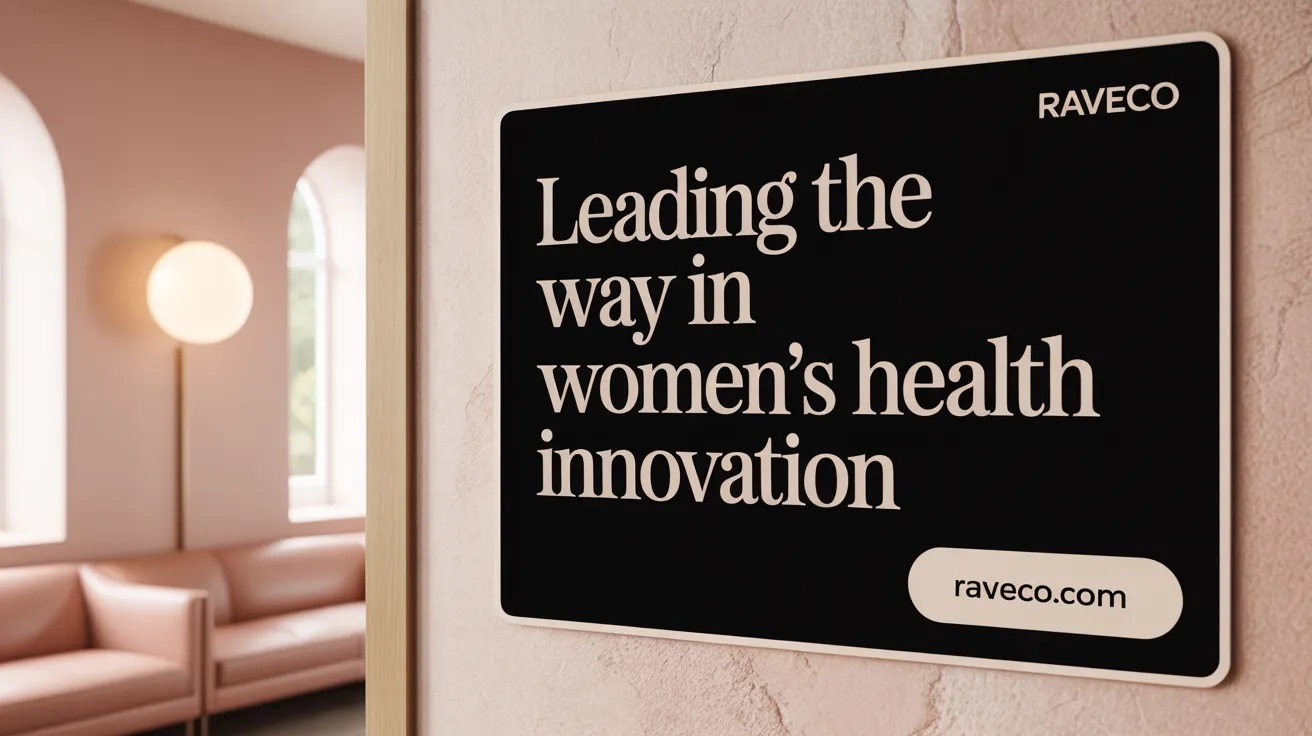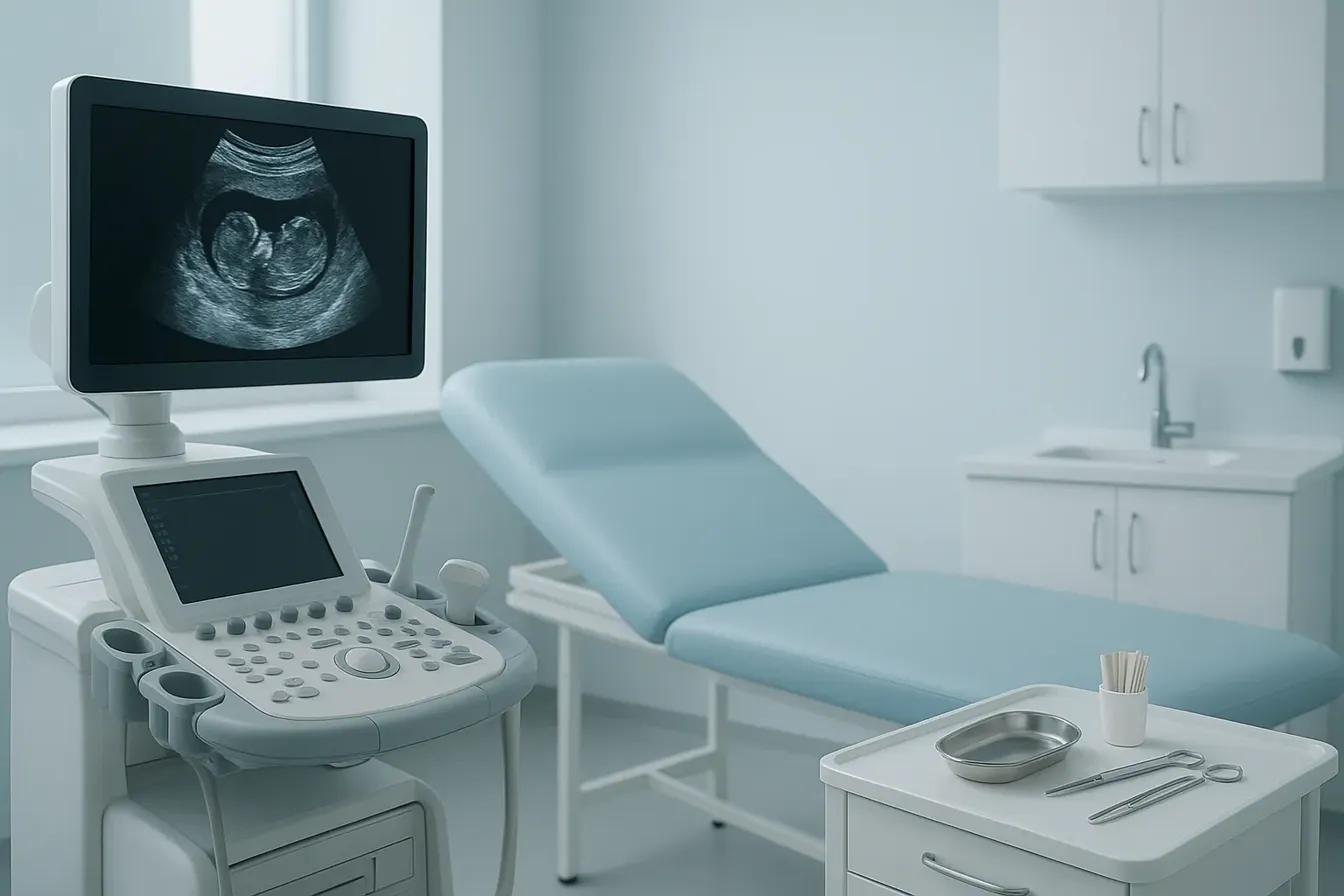Empowering Choices: The Essentials of Birth Control Counseling

Advancing Women’s Health Through Technology and Personalized Care
Overview of Technological Advancements in Women’s Health
Technology is significantly reshaping women's health care by introducing innovative tools that improve diagnosis, monitoring, and treatment. Platforms like Connected Maternity Online Monitoring (Connected MOM) enable remote prenatal tracking, which reduces clinic visits and enhances safety. Telemedicine supports remote ultrasound interpretation and fetal monitoring, ensuring timely interventions during pregnancy and labor. Moreover, robotic systems such as the da Vinci Surgical System offer minimally invasive surgical options that reduce recovery times and postoperative pain.
Importance of Personalized and Woman-Led Care in OB/GYN
Personalized care that respects individual needs is vital in women’s health. Woman-led practices like Women for Women OB/GYN LLC in Queens provide comprehensive, tailored care, including minimally invasive surgeries, gynecologic sonography, and specialized treatments for conditions such as endometriosis and diabetes during pregnancy. Such clinics emphasize preventive health through well-woman exams and customized wellness consultations. Integrating multidisciplinary teams further enhances care quality and addresses diverse health needs across women’s lifespan.
Connection Between Technology and Improved Health Outcomes
The integration of artificial intelligence (AI) is transforming OB/GYN care by improving risk prediction and personalized treatment strategies. For example, AI identifies pregnant individuals at risk for preeclampsia, facilitating targeted preventive therapy that reduces complications and racial disparities. AI applications also aid in evaluating Pap smear results and managing pregnancy-related conditions, increasing diagnostic accuracy and patient communication. These advances, combined with personalized approaches, lead to better health outcomes, equity in care access, and enhanced patient safety.
Comprehensive Services in Woman-Led OB/GYN Practices

What services are typically offered by a woman-led healthcare provider specializing in comprehensive obstetrics and gynecology?
Woman-led OB/GYN practices provide a broad spectrum of healthcare services designed specifically for women's unique needs across all life stages. These services include routine prenatal care, childbirth support, and postpartum recovery assistance. They manage high-risk pregnancies with expert attention, often involving maternal-fetal medicine specialists.
Comprehensive gynecologic care addresses menstrual disorders, menopause, uterine fibroids, endometriosis, and gynecologic cancers. Many practices use minimally invasive surgical techniques such as laparoscopy, hysteroscopy, and da Vinci Surgical System in gynecology robotic-assisted surgeries to reduce recovery times and enhance patient comfort.
Fertility and family planning services are integral, offering treatments for infertility, contraception options, genetic testing, and fertility preservation like egg freezing. These providers often have facilities connected to neonatal intensive care units, ensuring support for complex pregnancies and newborn care.
In addition to medical treatments, woman-led clinics prioritize personalized care, tailoring counseling and health education to individual patients. They foster inclusive environments that support diverse communities, including LGBTQ+ patients, through sensitive communication and culturally competent practices.
These practices also incorporate wellness programs, cosmetic treatments, and innovative diagnostic tools such as bone densitometry and advanced ultrasound technologies. Their patient-centered approach is reflected in offering comprehensive women's health screenings in Queens, addressing preventive care, and promoting long-term well-being for women in Queens and surrounding areas.
Harnessing Artificial Intelligence and Remote Monitoring in Maternal Care

How is AI used in screening and risk assessment for pregnancy complications?
Artificial intelligence (AI) is transforming maternal care by enabling early identification of risks such as preeclampsia and severe bleeding after childbirth. Cedars-Sinai utilizes AI algorithms that analyze patient data to detect those at higher risk, enabling targeted interventions like aspirin therapy to reduce complications and eliminate racial disparities in care.
What AI applications assist in gynecological cancer diagnostics?
AI supports gynecological cancer diagnostics by aiding in the evaluation of Pap smear results through advanced algorithms based on technologies like ChatGPT. These systems provide personalized recommendations to clinicians and improve communication with patients, enhancing diagnostic accuracy and timely treatment. More details about AI in gynecological cancer screening can be found at Cedars-Sinai.
What remote prenatal monitoring technologies are currently used?
Remote prenatal monitoring, exemplified by the Connected Maternity Online Monitoring (Connected MOM) platform in Queens, NY, allows expectant mothers to transmit vital signs and fetal heart rate data from home. This reduces the frequency of in-person visits and increases convenience while maintaining close supervision. For more information on these technologies, see Using technology in women's health care.
How do telemedicine and electronic fetal monitoring benefit maternal care?
Telemedicine extends access to obstetric consultations and remote interpretations of ultrasounds and fetal heart rate data. Systems like TeleStork centralize fetal monitoring, providing continuous oversight and timely detection of potential fetal distress during labor, improving safety and outcomes. More on this can be read at Using technology in women's health care.
What impact do these technologies have on early intervention and patient safety?
The integration of AI and remote monitoring fosters early diagnosis and intervention in pregnancy-related complications, reducing morbidity and mortality. These technologies enhance patient safety by enabling providers to act promptly and tailor care plans effectively, demonstrating promise for expanding equitable, personalized maternal health services. Relevant studies and initiatives are detailed in Women's health research.
Innovative Research and Clinical Advances Driving Personalized Women’s Health

How Is the National Institutes of Health Enhancing Women’s Health Research?
The National Institutes of Health (NIH) has broadened the scope of Women's health research beyond reproductive health to encompass diverse conditions affecting women uniquely. By integrating biological sex and gender in health factors into studies, NIH initiatives aim to close knowledge gaps and translate findings into practical healthcare advancements. A White House women's health initiative further supports innovative research focused on women's health across their lifespan.
What Role Does Precision Medicine Play in Gynecologic Cancer Treatment?
Cutting-edge research, such as that at Ohio State University Wexner Medical Center, focuses on precision medicine for endometrial and ovarian cancers. Molecular-based risk factor studies enable personalized care plans, improving treatment efficacy and patient outcomes. These advances represent a shift toward therapies tailored to individual genetic and molecular profiles.
How Do Multidisciplinary Approaches Improve Female Pelvic Health?
Comprehensive care centers bring together gynecologists, urologists, oncologists, and other specialists to address complex female pelvic conditions. For example, Ohio State’s Female Pelvic Health Center combines expert insight to offer holistic treatments for urinary incontinence and pelvic floor disorders, including non-surgical, injectable options.
What Are the Benefits of Robotics and Minimally Invasive Surgeries in Gynecology?
Minimally invasive technologies like the da Vinci Surgical System in gynecology, utilized by institutions such as Flushing Hospital Medical Center in Queens, have revolutionized gynecologic surgery. Patients benefit from less blood loss, reduced pain, and quicker recovery, particularly in surgeries for uterine fibroids, cervical and uterine cancers, and endometriosis.
How Are Health Disparities Being Addressed in Women’s Healthcare?
Leading medical centers emphasize equitable care through specialized clinics and research aimed at reducing disparities. Initiatives include multisite collaborations targeting maternal health inequities and clinics focused on high-risk pregnancies, addiction during pregnancy, and transgender health. These tailored services enhance access and outcomes for underserved populations, such as those in Queens.
| Area of Advancement | Description | Institutions / Examples |
|---|---|---|
| NIH Women's Health Research | Expanding research scope beyond reproduction | National Institutes of Health, White House Initiative |
| Precision Medicine in Cancer | Molecular profiling for personalized treatment | Ohio State University Wexner Medical Center |
| Multidisciplinary Pelvic Health | Coordinated expert care for complex conditions | Ohio State Female Pelvic Health Center |
| Robotic and Minimally Invasive Surgery | Reduced recovery and procedural risks | Flushing Hospital Medical Center, da Vinci Surgical System in gynecology |
| Addressing Health Disparities | Targeted clinics and research for equitable outcomes | Ohio State, specialized Queens clinics |
The Unique Impact of Woman-Led Leadership in OB/GYN Care

What distinguishes a woman-led healthcare provider in the field of obstetrics and gynecology?
Woman-led OB/GYN practices are uniquely characterized by leadership and care teams composed entirely of women, including Board-certified physicians and nurse practitioners. This arrangement promotes a profound understanding of women's health research initiatives at every life stage, enabling providers to offer deeply empathetic and individualized care.
How do woman-led practices enhance empathetic, individualized care?
Their shared experiences and perspectives often translate into a stronger patient-provider rapport, fostering open communication and trust. This supportive atmosphere is especially important when addressing sensitive topics such as reproductive health, infertility, endometriosis, and menopause, as seen in the comprehensive Women's Health Services in Queens and Women for Women OB/GYN LLC.
What holistic support do they provide from puberty to menopause?
Women-led practices offer comprehensive services encompassing puberty, pregnancy, childbirth, and menopause. Treatments include advanced procedures like minimally invasive surgeries, colposcopy, prenatal care, and management of high-risk pregnancies, ensuring continuous and personalized care throughout a woman's life.
How do they promote preventive care and patient education?
These providers strongly emphasize preventive health through well-woman exams, cancer screenings, bone density tests, and lifestyle counseling. Patient education tailored to each individual's needs helps empower women to actively participate in their health decisions, improving outcomes and quality of life with support from technologies such as Connected Maternity Online Monitoring (Connected MOM).
What are the distinct advantages compared to traditional models?
Compared to traditional models often dominated by male leadership, woman-led practices excel in combining medical expertise with emotional support, creating a patient-centered environment. Their collaborative, multidisciplinary approach ensures that physical, emotional, and social aspects of women's health are addressed, offering superior satisfaction and holistic wellness, as highlighted in Innovations in Obstetrics and Gynecology and supported by advances like Artificial intelligence in OB-GYN care.
Technology-Driven Patient Empowerment and Improved Outcomes in Queens Women’s Health

How does personalized and advanced women’s health care benefit patients?
Personalized and advanced women’s health care empowers patients by creating tailored treatment plans that fit each woman's individual health needs. This approach moves beyond generic treatments, ensuring care addresses unique biological and social factors affecting women (Women's health research, Innovations in Obstetrics and Gynecology, Women for Women OB/GYN LLC, Best OBGYN in Queens, NY).
Integration of electronic health records and patient portals
In Queens, healthcare providers have adopted electronic health records (EHRs) that securely store patient information and enable quick access for medical teams. Patient portals allow women to view their health data, schedule appointments, and communicate easily with providers, enhancing transparency and engagement (Using technology in women's health care, Women's Health Services in Queens).
Mobile health applications supporting contraception and pregnancy
Mobile apps widely support Queens residents by offering tools for tracking contraception, monitoring pregnancy progress, and managing reproductive health. Some apps are FDA-approved, helping users make informed decisions and facilitating better self-care (Using technology in women's health care, Women for Women OB/GYN LLC).
Use of advanced diagnostic tools like 4-D ultrasound and bone densitometry
Providers in Queens utilize cutting-edge diagnostic technologies such as 4-D ultrasound for detailed fetal imaging and bone densitometry for assessing bone health. These tools aid in early detection and precise diagnosis, informing improved treatment strategies (Women for Women OB/GYN LLC, EMU OB-GYN Gynecologists Center Queens).
Community outreach through education and wellness consultations
Local clinics provide personalized wellness consultations and educational programs to inform women about preventive care and healthy lifestyle choices. This community-focused approach helps increase awareness and encourages proactive health management (Women for Women OB/GYN LLC, EMU OB-GYN Gynecologists Center Queens, Women's Health Services in Queens.
Evidence-based data supporting improved health outcomes
The integration of technology with personalized care in Queens is supported by research demonstrating better pregnancy monitoring, early identification of health risks, and reduced disparities in treatment outcomes. This evidence underpins ongoing advancements, ensuring women receive effective and equitable healthcare (Women's health research, Artificial intelligence in OB-GYN care, Using technology in women's health care, Innovations in Obstetrics and Gynecology).
Use of the da Vinci Surgical System in gynecology
Minimally invasive surgeries utilizing the da Vinci Surgical System in gynecology provide enhanced precision and quicker recovery times for patients. This advanced technology is being incorporated into care practices in Queens to offer less painful and more effective surgical options (da Vinci Surgical System in gynecology, da Vinci Surgical System in gynecology, da Vinci Surgical System in gynecology, da Vinci Surgical System in gynecology, Flushing Hospital Medical Center).
Embracing Innovation for the Future of Women’s Health
Technological and Woman-Led Advances in Women's Health
Women's health care is rapidly evolving with significant contributions from technology and women-led initiatives. Institutions like Cedars-Sinai harness artificial intelligence to predict and manage conditions such as preeclampsia and gestational diabetes, advancing personalized medicine. In Queens, clinics led by female specialists, such as Women for Women OB/GYN LLC and EMU Health, provide comprehensive, tailored care using minimally invasive surgeries, innovative diagnostic techniques, and supportive wellness consultations.
Importance of Continued Research and Inclusive Care
Ongoing research, supported by major centers like Ohio State University and NIH programs, seeks to reduce disparities in maternal health outcomes and improve treatments for conditions like uterine and ovarian cancers. Inclusive care ensures equitable access to care for diverse communities, emphasizing collaboration across specialties and the integration of novel interventions.
Vision for Empowering Women Through Personalized, Tech-Enabled OB/GYN Services
The future of women’s health lies in combining compassionate, individualized care with cutting-edge technology. Remote monitoring platforms and advanced robotic surgeries enhance patient comfort and safety, while data-driven insights guide precise interventions. This vision empowers women across their lifespan, promoting healthier outcomes through accessible, innovative OB/GYN services responsive to each woman’s unique health profile.





.png)